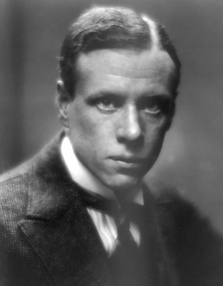WITS AND WRITERS
The Jazz Age was a time of rampant witticisms. Dorothy Parker called it “the terrible day of the wisecrack.” Some of the wisenheimers of the Jazz Age are remembered here.
Wits

Noel Coward
It’s hard to put Noel Coward in a category. He…

George S. Kaufmann
George S. Kaufman, along with Dorothy Parker, was a member…

P.G. Wodehouse
Golly, he was prolific! P.G. Wodehouse wrote all through the…

Dorothy Parker
Acerbic wit Dorothy Parker was a member of the Algonquin…

H.L. Mencken
Mencken is known for his satirical reporting on the Scopes…

Robert Benchley
Yet another writer for the New Yorker and wit of…

Anita Loos
California girl Anita Loos wrote more than 150 screenplays, both…

James Thurber
James Thurber was chiefly a cartoonist and writer of humorous…

Will Rogers
Will Rogers was the antidote to H.L. Mencken and the…
Writers
Here’s a delightful rabbit hole to trip and fall into, and it is a very deep one, indeed. The Jazz Age was a time of ground-breaking literary experimentation that has continued to influence writers right up to this very moment. While not all Jazz Age authors experimented, the ones who did have given us a way to understand the exuberance and sense of liberation (and sometimes the despair) they were feeling as they wrote.

F. Scott Fitzgerald
Today he is recognized as the quintessential Jazz Age writer. He captured the decadence and of the age in his writing while embracing it in his private life. The Great Gatsby tells us everything we need to know about the emptiness underneath the glamour of the 1920s.

Ernest Hemingway
The Great War shattered the idealism of the young people who lived through it, and Hemingway and other writers of the Lost Generation chronicled the dissipated lives they went on to lead. Today Hemingway is known for his spare writing style that was a break with writing traditions of the past – the literary equivalent of Art Deco’s split from art forms of the past. As Fitzgerald’s star has risen, Hemingway’s has fallen.
Many of the Lost Generation lived abroad (mostly Paris). Beyond Fitzgerald and Hemingway, here is a list to get you started:

Sinclair Lewis

Ezra Pound

Sherwood Anderson

Ford Madox Ford

Djuna Barnes

Virginia Woolf

Gertrude Stein

Hart Crane

John Dos Passos

William Faulkner

Edna St. Vincent Millay

Dashiell Hammett

T. S. Eliot

E. E. Cummings

John Steinbeck

Thomas Wolfe

James Joyce
The Harlem Renaissance
Meanwhile, in Harlem Black writers were giving voice to African-American identity and creating new forms of expression such as jazz poetry. Some writers of note are:

Langston Hughes

Claude McKay

Nella Larsen

Jessie Redmon Fauset

Zora Neale Hurston
